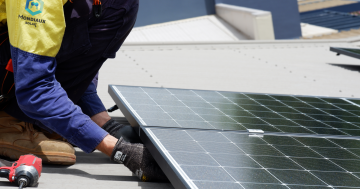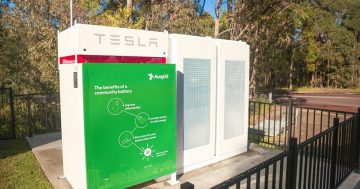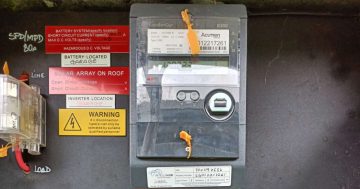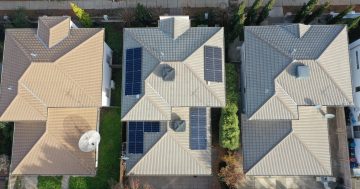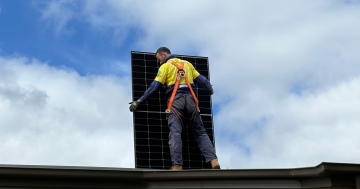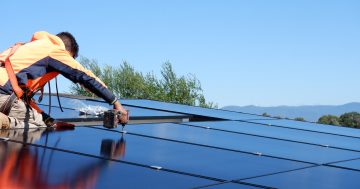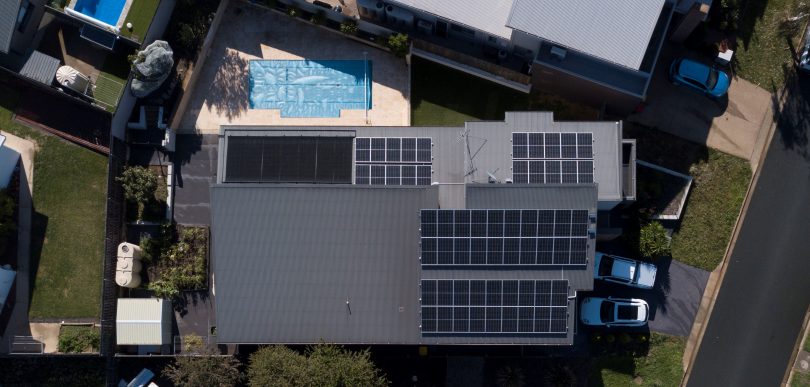
Solar panels on a suburban roof by Mondiaux Solar, one of Canberra’s most recommended commercial solar panel installers. Photo: Mondiaux Solar.
Solar panels have become a common sight across the rooftops of Canberra’s suburbs, generating clean, green electricity and reducing power bills. But when the sun isn’t shining and power needs to be used, households and businesses still need to rely on the grid, usually at the most expensive time of the day.
It is an unavoidable fact that solar systems produce power at different times than when homeowners use it. Solar systems usually overproduce electricity during the middle of the day, beyond what most homeowners need. While this excess power is currently sold back to the utility grid, with homeowners receiving a credit to offset the power they draw in at night, the credit is very small and households can use a lot of power in the evenings when appliances are often at peak use.
However, with the ACT Government recently establishing a $150 million fund for the Sustainable Household Scheme to offer zero-interest loans to help households with the upfront costs of investing in solar technologies, it may seem like now is the perfect time to add a battery backup to a household solar system.
But should you? The answer: it depends.
At the most basic level, solar batteries allow the power produced during the day to be kept and stored for use when the sun is not shining. When a solar system is paired to a battery, homeowners can use their surplus electricity to charge up their battery instead of sending it back to the grid.
Utility company plans often have peak charges during the late afternoon and early evening when demand spikes as everyone heads home and increases their power consumption. The off-peak times are during the middle of the day, when solar systems everywhere are producing excess power, and overnight, when demand is lowest.
Homeowners receive less credit for their extra power generated during the day than they pay for power they draw in during the evening. As a result, homeowners can still end up paying money to the utility company at the end of the month even if their solar system met 100 per cent of their power demand on a net basis. And these costs may rise even further as households with rooftop solar panels may soon be charged for exporting electricity to the grid under new rules being recommended by the Australian Energy Market Commission.
READ MORE: Solar panels tax proposal sends the wrong message
This is where solar batteries come in.
Pairing a solar system with a battery can allow homeowners to use more of their own clean energy. Rather than feeding excess solar power when it’s less valuable, a battery will allow homeowners to store their excess power onsite and feed that power into the house at night, reducing the amount of power they need to draw from the grid at the highest cost time of day.
But consumers are being urged to do their homework before they rush out to add a battery.
Mondiaux Solar general manager Howard Lian says homeowners should look carefully at their electricity usage and the cost of adding a battery to their system to determine if a battery will benefit them.
“The amount of savings that a solar battery will provide depends on several factors, including how much electricity the homeowner uses, what time of day they use that power, and the structure of their specific rate plan,” he says.
“With a battery, homeowners are able to produce, store and use their own clean power around the clock. This not only provides the satisfaction of being more self-powered by clean energy, it also enables more energy independence by reducing reliance on the grid.
“But batteries come in different ranges and sizes so it is important to have someone help you analyse your usage data in order to match the battery to your use and your system – you can waste money if it is too big.
“Consumers also need to look at the cost of the battery against the savings as there is no point projecting the savings past the warranty date of the system.”
Howard says the importance of batteries will only grow during the coming years.
“The benefits of adding a battery to a solar system will continue to improve as prices continue to fall,” he says. “If the numbers don’t add up now, it may only be a couple of years when it will be a benefit – the changes are happening fast.
“Without question, solar batteries are here to stay.”
For more information about adding a battery to your home’s solar system, visit Mondiaux Solar.













